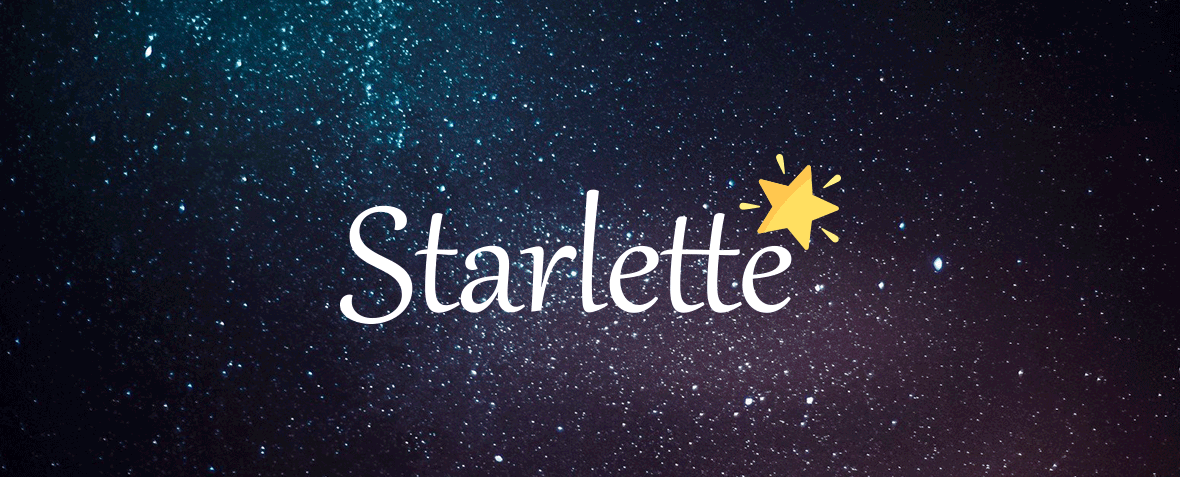
✨ The little ASGI framework that shines. ✨
--- **Documentation**: [https://www.starlette.io/](https://www.starlette.io/) **Community**: [https://discuss.encode.io/c/starlette](https://discuss.encode.io/c/starlette) --- # Starlette Starlette is a lightweight [ASGI](https://asgi.readthedocs.io/en/latest/) framework/toolkit, which is ideal for building high performance asyncio services. It is production-ready, and gives you the following: * Seriously impressive performance. * WebSocket support. * GraphQL support. * In-process background tasks. * Startup and shutdown events. * Test client built on `requests`. * CORS, GZip, Static Files, Streaming responses. * Session and Cookie support. * 100% test coverage. * 100% type annotated codebase. * Zero hard dependencies. ## Requirements Python 3.6+ ## Installation ```shell $ pip3 install starlette ``` You'll also want to install an ASGI server, such as [uvicorn](http://www.uvicorn.org/), [daphne](https://github.com/django/daphne/), or [hypercorn](https://pgjones.gitlab.io/hypercorn/). ```shell $ pip3 install uvicorn ``` ## Example **example.py**: ```python from starlette.applications import Starlette from starlette.responses import JSONResponse from starlette.routing import Route async def homepage(request): return JSONResponse({'hello': 'world'}) routes = [ Route("/", endpoint=homepage) ] app = Starlette(debug=True, routes=routes) ``` Then run the application using Uvicorn: ```shell $ uvicorn example:app ``` For a more complete example, see [encode/starlette-example](https://github.com/encode/starlette-example). ## Dependencies Starlette does not have any hard dependencies, but the following are optional: * [`requests`][requests] - Required if you want to use the `TestClient`. * [`aiofiles`][aiofiles] - Required if you want to use `FileResponse` or `StaticFiles`. * [`jinja2`][jinja2] - Required if you want to use `Jinja2Templates`. * [`python-multipart`][python-multipart] - Required if you want to support form parsing, with `request.form()`. * [`itsdangerous`][itsdangerous] - Required for `SessionMiddleware` support. * [`pyyaml`][pyyaml] - Required for `SchemaGenerator` support. * [`graphene`][graphene] - Required for `GraphQLApp` support. * [`ujson`][ujson] - Required if you want to use `UJSONResponse`. You can install all of these with `pip3 install starlette[full]`. ## Framework or Toolkit Starlette is designed to be used either as a complete framework, or as an ASGI toolkit. You can use any of its components independently. ```python from starlette.responses import PlainTextResponse async def app(scope, receive, send): assert scope['type'] == 'http' response = PlainTextResponse('Hello, world!') await response(scope, receive, send) ``` Run the `app` application in `example.py`: ```shell $ uvicorn example:app INFO: Started server process [11509] INFO: Uvicorn running on http://127.0.0.1:8000 (Press CTRL+C to quit) ``` Run uvicorn with `--reload` to enable auto-reloading on code changes. ## Modularity The modularity that Starlette is designed on promotes building re-usable components that can be shared between any ASGI framework. This should enable an ecosystem of shared middleware and mountable applications. The clean API separation also means it's easier to understand each component in isolation. ## Performance Independent TechEmpower benchmarks show Starlette applications running under Uvicorn as [one of the fastest Python frameworks available](https://www.techempower.com/benchmarks/#section=data-r17&hw=ph&test=fortune&l=zijzen-1). *(\*)* For high throughput loads you should: * Make sure to install `ujson` and use `UJSONResponse`. * Run using gunicorn using the `uvicorn` worker class. * Use one or two workers per-CPU core. (You might need to experiment with this.) * Disable access logging. Eg. ```shell gunicorn -w 4 -k uvicorn.workers.UvicornWorker --log-level warning example:app ``` Several of the ASGI servers also have pure Python implementations available, so you can also run under `PyPy` if your application code has parts that are CPU constrained. Either programatically: ```python uvicorn.run(..., http='h11', loop='asyncio') ``` Or using Gunicorn: ```shell gunicorn -k uvicorn.workers.UvicornH11Worker ... ```— ⭐️ —
Starlette is BSD licensed code. Designed & built in Brighton, England.
[requests]: http://docs.python-requests.org/en/master/ [aiofiles]: https://github.com/Tinche/aiofiles [jinja2]: http://jinja.pocoo.org/ [python-multipart]: https://andrew-d.github.io/python-multipart/ [graphene]: https://graphene-python.org/ [itsdangerous]: https://pythonhosted.org/itsdangerous/ [sqlalchemy]: https://www.sqlalchemy.org [pyyaml]: https://pyyaml.org/wiki/PyYAMLDocumentation [ujson]: https://github.com/esnme/ultrajson